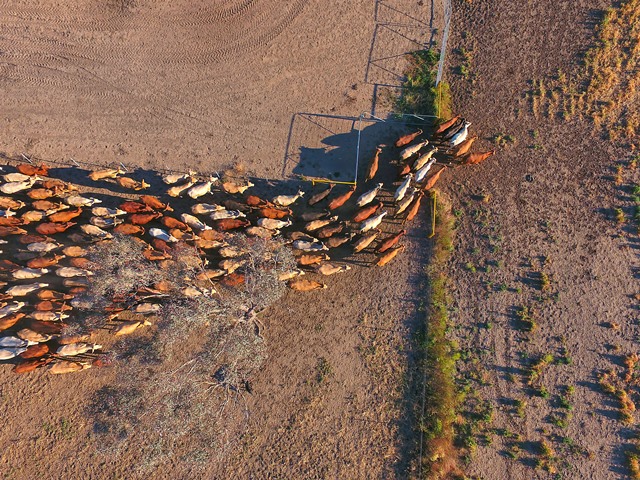Key Dates
Next Grant Round:
Applications for funding will open early 2025.
> Information about our Grants Program
Independent Grants Panel:
Results of the recent EOI will be notified Dec 2024.
> Information about our Panel
We can help: grants@accan.org.au
or phone 02 9288 4000
Subscribe to Grants Program mailings
 With many people travelling or taking time off over the holidays, we thought we’d share some tips to help you keep track of your data usage, use your phone overseas and get issues resolved.
With many people travelling or taking time off over the holidays, we thought we’d share some tips to help you keep track of your data usage, use your phone overseas and get issues resolved.
Mobile
If you are travelling locally you may be more reliant on your smartphone and you might find your data allowance getting used up more quickly. Check out our tip sheet on how to use less data on your smartphone and our blog on how much excess data will cost you.
Read more: Phone and internet tips for the holidays
Write comment (0 Comments)The Regional, Rural and Remote Communications Coalition (RRRCC) has welcomed NBN Co’s new measures to support better bush comms during the COVID-19 pandemic.
Communications services are a vital utility. As more people work from home and students are asked to study remotely, households will require more data to keep connected. NBN Co’s offer of an additional 45GB of data for nbn Sky Muster customers over the next three months will allow regional consumers greater flexibility to engage with education, telehealth, businesses and government services without worrying about exceeding their data cap.
Read more: RRRCC welcomes NBN Co’s efforts to provide #BetterBushComms
ACCAN recently submitted to the Senate Environment and Communications Reference Committee’s Inquiry into greenwashing. Greenwashing is where a business or organisation misleads consumers about their products or services as being in some way environmentally friendly.
ACCAN supports RSPs establishing practices to decrease their environmental impact and sharing those practices with consumers. However, consumers should have confidence that the RSPs they choose for their sustainability claims are substantiating those claims. In response to greenwashing in the telecommunications market ACCAN recommends:
 ACCAN’s submission to the Independent Review into the Telecommunications Industry Ombudsman (TIO) highlighted the important role of the TIO, but also identified a number of areas for improvement.
ACCAN’s submission to the Independent Review into the Telecommunications Industry Ombudsman (TIO) highlighted the important role of the TIO, but also identified a number of areas for improvement.
The final report agreed with ACCAN’s recommendations that there is a need for:
Read more: Positive outcomes from TIO review
Write comment (0 Comments)The Australian Communications Consumer Action Network (ACCAN) has called on the nation’s telecommunications networks to ensure that no Australian is left offline during the COVID-19 pandemic.
While the world is undoubtedly entering uncertain times, it has been widely acknowledged that telecommunications networks will have an increasingly important role in keeping consumers connected. COVID-19 is expected to highlight the now vital role of reliable telecommunications services in the everyday lives of Australians, whether for work, education, health, or social use.
“The fact is that an internet connection is now a basic utility,” said ACCAN CEO Teresa Corbin. “If people can’t afford to be online, or aren’t guaranteed a reliable connection, there can be serious consequences.”
Read more: COVID-19 highlights need for affordable, reliable communications
ACCAN recently submitted to the Australian Communications and Media Authority’s (ACMA) consultation on the sunsetting of the Broadcasting Services (Television Captioning) Standard 2013. This submission was developed in consultation with our members, including Deafness Forum of Australia, Deaf Australia and the Centre for Inclusive Design (CfID). ACCAN’s submission recommended:
- That the Standard is redrafted with minor amendments to require broadcasters to address issues of latency and synchronicity in the captions used on their television programs.
- That the redrafted Standard is implemented by the ACMA with stronger compliance and enforcement measures.
- That the ACMA further investigates and provides information on the implementation of a metric model such as the Number, Edition error, Recognition error (NER) model.
 RRR Communications Coalition celebrates one year
RRR Communications Coalition celebrates one year
By Teresa Corbin & Fiona Simson*
Anyone who lives in a rural or regional area knows the pain of poor telecommunications services. We often hear stories of people pulling their hair out trying to run businesses, apply new technologies and educate their kids on small data allowances and unreliable connections.
Read more: All we want in 2018 is #BetterBushComms
Write comment (0 Comments)The Australian Communications Consumer Action Network (ACCAN) has welcomed the announcement of additional identity checks as a positive step towards protecting mobile phone users against scammers.
The introduction of the Australian Communications and Media Authority (ACMA)’s new Telecommunications (Mobile Number Pre-porting Additional Identity Verification) Industry Standard 2020 aims to prevent fraudulent number porting by requiring telcos to apply stronger identity checks before they transfer a mobile phone number to another provider.
ACCAN recently submitted our comments on the Variation to the NBN Co Special Access Undertaking (SAU) Draft Decision consultation.
The SAU sets out the regulatory framework for determining NBN Co’s service offerings, revenue, expenditures and service standards. The variation sets out a framework for extensive engagement with Consumer Advocacy Groups, such as ACCAN to inform the prioritisation of expenditure to align with consumer expectations. While the proposed variation to the SAU represents a material step forward, there is no provision to resource the extensive engagement NBN Co is proposing to undertake, accordingly we consider further refinements are needed.
Read more: NBN Special Access Undertaking (SAU) Draft Decision
 nbn announced today that it will 'pause' the rollout of NBN HFC connections. This is because nbn has identified issues in the HFC rollout that need remediation, and will be taking a more careful approach that should result in improved customer experience. ACCAN welcomes this approach.
nbn announced today that it will 'pause' the rollout of NBN HFC connections. This is because nbn has identified issues in the HFC rollout that need remediation, and will be taking a more careful approach that should result in improved customer experience. ACCAN welcomes this approach.
Consumers in HFC areas may be wondering how this announcement will affect them. We have identified five different situations that consumers may find themselves in. See below for information on how consumers in HFC areas may be affected.
Read more: nbn ‘pauses’ new HFC connections
Write comment (0 Comments)Proposed rules for wholesale telecommunications service providers must be tightened to protect Australians from under-performing phone and internet services, and slow connection and fault rectification timeframes, according to the Australian Communications Consumer Action Network (ACCAN).
The draft Telecommunications (Statutory Infrastructure Providers – Standards, Rules and Benchmarks) Determination 2021 proposes standards, rules and benchmarks for telecommunications carriers that provide wholesale broadband services, such as NBN Co. The rules proposed are in relation to timeframes for connections, repairs and appointment keeping, rebates, speeds, remediation and record keeping.
Read more: New rules for telco networks must be changed to benefit consumers: ACCAN
ACCAN recently submitted to Communications Alliance’s consultation on the Telecommunications Consumer Protections (TCP) Code Review 2024. ACCAN’s engagement with consumers, consumer representatives, peak bodies, and consumer groups has elicited a common view that the TCP Code provides inadequate consumer protections and is not underpinned by effective compliance, enforcement, and penalty arrangements.
 In November, the ACCC announced that Telstra will offer remedies to around 42,000 customers. Announcements that Optus would compensate more than 8,700 of its customers and that TPG would compensate nearly 8,000 of its customers for the same issue were made in December.
In November, the ACCC announced that Telstra will offer remedies to around 42,000 customers. Announcements that Optus would compensate more than 8,700 of its customers and that TPG would compensate nearly 8,000 of its customers for the same issue were made in December.
Both announcements received wide coverage in the media. There is some confusion around the issue and who is entitled to a remedy. This blog attempts to clear up this confusion.
What is the issue?
While there are a number of issues that consumers are reporting with services over the NBN, this compensation relates to a very specific problem where the maximum download speed consumers paid for was never possible at their premises.
Read more: Getting a refund for unattainable NBN speeds
Write comment (0 Comments)New complaints data highlights the growing impact that unreliable telco services have on small businesses, according to the Australian Communications Consumer Action Network (ACCAN).
The Quarter 2 Complaints report released today by the Telecommunications Industry Ombudsman (TIO) shows that while overall phone and internet complaints are declining, the percentage of complaints coming from small businesses continues to increase.
Read more: Small businesses lodging greater share of telco complaints
ACCAN has recently submitted to the Australian Communications and Media Authority’s call for comments on their draft caption target reduction orders.
ACCAN has recommended that the ACMA do not grant the exemptions for the two channels arguing that they undermine the obligation for subscription broadcasters to provide year-on-year increased quotas for captions.
 Many Australian not-for-profit organisations and businesses currently have domain names for their internet presences under the second level domains. For example: *.com.au and *.org.au. Domain names are used to find resources and services on the internet such as web pages (eg www.accan.org.au) and email addresses (This email address is being protected from spambots. You need JavaScript enabled to view it.).
Many Australian not-for-profit organisations and businesses currently have domain names for their internet presences under the second level domains. For example: *.com.au and *.org.au. Domain names are used to find resources and services on the internet such as web pages (eg www.accan.org.au) and email addresses (This email address is being protected from spambots. You need JavaScript enabled to view it.).
Recently, auDA, the body responsible for Australia’s domain name system agreed to introduce ‘direct registrations’. This is where your chosen internet domain name does not use the familiar “.com.au”, “.net.au”, “.org.au”, and new names will be simply “orgname.au”.
Read more: Australia’s Domain Name System is changing
Write comment (19 Comments)Telco customers will benefit from clearer communication from their providers; however, further efforts will be needed to protect consumers against unreliable telco services, according to the Australian Communications Consumer Action Network (ACCAN).
Released today, the Morrison Government’s Consumer Safeguards Review Part B report provides a high-level framework that aims to address reliability issues of telco services at the wholesale and retail level.
Read more: Telco reliability framework remains a work in progress: ACCAN
ACCAN supported the ACMA proposal to remake the Radio Communication Labelling Determination (2013) in a recent submission. The labelling of high-power radiocommunications transmitters operating under transmitter licenses at communal sites enables both industry and the ACMA with the necessary information to ensure that these transmitters continue to operate as intended.
Read more: Proposal to remake the Radiocommunications (Labelling) Determination 2013
 In the flurry of media this week about the TIO Annual Report and 41 per cent increase in telecommunication complaints received, Communication Alliance and nbn both made reassuring comments about the state of the problem.
In the flurry of media this week about the TIO Annual Report and 41 per cent increase in telecommunication complaints received, Communication Alliance and nbn both made reassuring comments about the state of the problem.
But how reassured should we be?
Communications Alliance is “pleased” that in the last three months the rate of complaints slightly decreased (from 9 per 10,000 services in operation between Apr-Jun 2017 to 8.3 per 10,000 Jul- Sept 2017).
Read more: Fact Check: Communication Alliance and nbn media releases
Write comment (0 Comments)Telcos must play their part if consumers are to benefit from changes to NBN Co’s wholesale pricing and data capacity, according to the Australian Communications Consumer Action Network (ACCAN).
Changes announced today by NBN Co will give telcos more flexibility in what they can offer their customers, starting with a reduction in the wholesale price of a modified 25Mbps service from December 2019. Importantly, these changes to 25Mbps services will affect both fixed line and fixed wireless plans, which mean that households in both metropolitan and regional areas should be able to benefit from cheaper broadband and better options. However, this is entirely dependent on telcos passing the changes on to their customers.
Read more: Telcos must pass on NBN improvements to consumers: ACCAN
ACCAN recently commented on the Consolidated Industry Codes of Practice for the Online Industry (Class 1A and Class 1B Material).
ACCAN’s submission outlined our concerns regarding the lack of clarity around dispute resolution and redress processes in the draft Codes. The eSafety Commission should be explicitly included as an avenue for consumers to appeal decisions made under the codes and minimise consumer harm from incorrect decisions.
 Consumers are increasingly buying Internet-connected appliances for their homes. Often referred to as the Internet of Things (IoT), the range of internet-connected products already available includes not only the obvious things like Smart TVs, gaming consoles, security and safety cameras, but smart light bulbs, sewing machines and even dishwashers.
Consumers are increasingly buying Internet-connected appliances for their homes. Often referred to as the Internet of Things (IoT), the range of internet-connected products already available includes not only the obvious things like Smart TVs, gaming consoles, security and safety cameras, but smart light bulbs, sewing machines and even dishwashers.
Telstra says the average home already has 11 or 12 connected devices and predicts that by 2020 a typical home will have about 30.
As well as being useful by enabling us to remotely manage our home environments, many of these devices also collect a lot of data. Conceivably, this data collection can pose huge risks to consumers’ privacy and security.
Read more: How safe are IoT devices?
Write comment (0 Comments)Missed NBN appointments are costing Australians over $15 million per year in lost time, according to analysis from the Australian Communications Consumer Action Network (ACCAN).
The staggering financial impact of NBN Co’s 320 missed appointments per day1 was revealed in ACCAN’s response to the ACCC’s draft decision on the NBN wholesale service standards inquiry.
Read more: Australians lose $15M per year to missed NBN appointments
ACCAN recently commented on the 2023-2030 Australian Cyber Security Strategy Discussion Paper. ACCAN’s submission recommended that:
- Cyber security by design should be fostered in key software and apps markets.
- Consumers and small businesses should only have their data collected where strictly necessary and any data collected must be safely stored.
- Consumer and small business education should be a key focus of the cyber security strategy.
- Consumer protections should be strengthened to reduce technology facilitated abuse.
Read more: 2023-2030 Australian Cyber Security Strategy Discussion Paper
